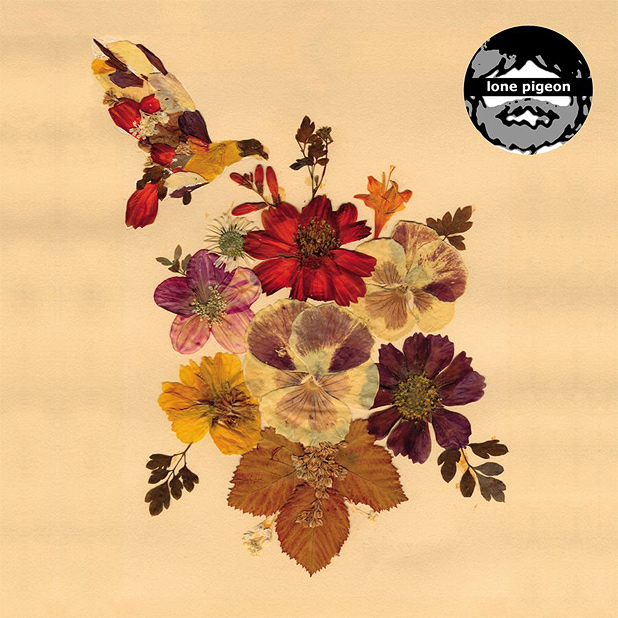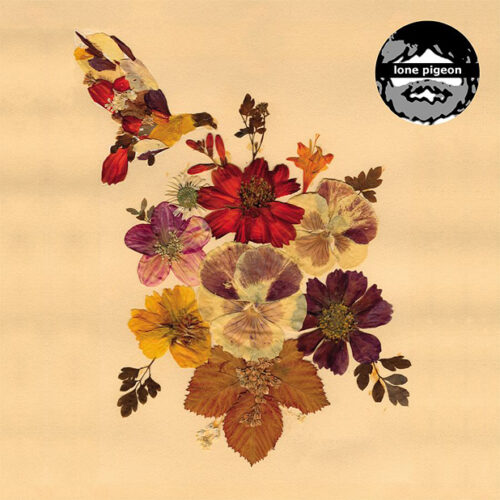The life of Gordon Anderson has been one of shattering mental illness interspersed with triumphant musical statements. Ever since he was forced to leave the Beta Band in the mid-90s because of his crippling, drug-induced bipolarity, he has been largely at the mercy of his own demons. He then spent the best part of a decade in an institution before emerging in a blaze of psychedelic pop glory as front man of the Aliens, complete with two of his old Beta Band mates accompanying him – but even their time has been punctuated by Anderson’s periods of mental illness. He may be one of the most conflicted talents in pop, but few can match his capacity for wonderfully melodic, often joyful songs.
Over the years, he has accumulated material and played the odd show under his solo moniker, Lone Pigeon, and this colossal seven-disc collection is a veritable archive of demos, ideas and samples, while some of these ‘tracks’ are merely riffs or Anderson’s short vocal ramblings. In fact, each disc is a stand-alone album, five of which have never been officially released. The other two, Moses and 28 Secret Songs, are long out of print. All up, there are a hefty 159 songs to be heard.
Overall, this release is an incessant gloopy soundscape of half-ideas, though elevated quite often by moments of stunning songwriting purity as to recall Paul McCartney’s incorporation of music hall stylings into his songwriting from Sgt Pepper… onwards. A lot of the best snippets were indeed fleshed out into Aliens songs (there are several versions of what became ‘Glover’ here), but others only hint at what they might have become had they been able to grow with a band and a proper studio, with ‘How Can I Go?’, ‘Don’t Sell My Love’ and ‘Emily’ being the standout unrealised gems.
To say that this collection could do with editing down would be to defeat the completist nature of the release, but it must be said that if Anderson did have more focus and acuter song selection, a scratchy and poignant masterpiece might have been the result, in the mould of records by others affected by the black dog of extreme depression such as Daniel Johnston or the artist Anderson is most redolent of, Skip Spence. Lone Pigeon’s very own Oar lurks within all this somewhere, but it would have been a mammoth task to eek out the gold amid the chaos.
For Aliens and Beta Band fans, it will be an insightful experience to hear the full gamut of Anderson’s gifts in this way (even if listening to the whole thing will take up nearly an entire working day). However, given that many of these songs came out of periods of Anderson’s life where he barely knew who he was, some of Time Capsule can make for disturbing, uncomfortable listening. ‘Harry’s Orange Window’, as one example among several, has that same compulsively repetitive, sedated sense of madness as Spence’s ‘Grey/Afro’. Anderson rarely directly confronts his illness in these songs, but there is enough in their hazy and chattering nature to hint at the darkness behind them.
The best of the seven discs is the last one, the Honda Hedge album, which contains the most tracks to end up on the two Aliens albums (as well as the wonderful ‘Waterfall’) – more straightforward songs that deal with love and loss. Whether this disc is the most attractive simply because it features the most familiar songs is irrelevant; ultimately it offers this exhaustive mass of music, the chronicles of Lone Pigeon, the chance to end on a redemptive, relatively upbeat note. That’s the very least the Gordon Anderson story deserves.



